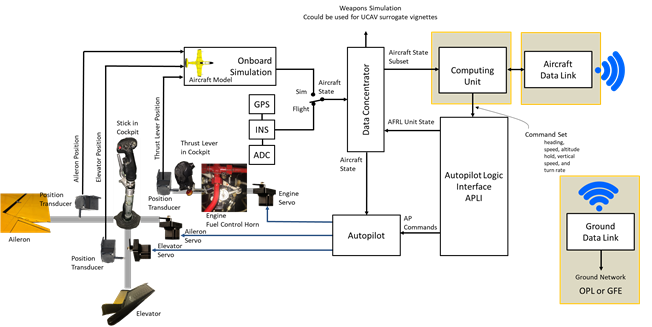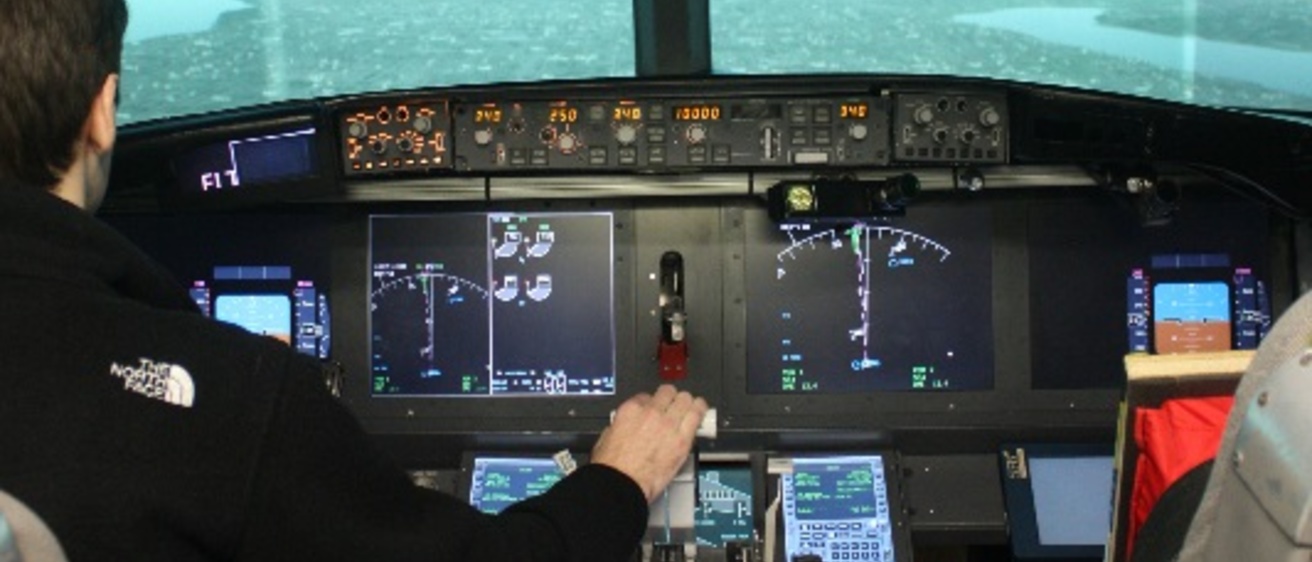Need
- Tactical autonomy requires robust control of airborne systems by on- and off-board team members.
- Environmental, battle space, and airframe-imposed changes or limitations require the use of robust and adaptive control systems that offer predictable outcomes and graceful degradation modes.
- A big limitation in the DoD autonomous system design cycle is that there are very few airborne testbeds available to facilitate development and testing of new control systems. This can lead to late-stage discovery of engineering shortcomings that are very costly to fix.

OPL Resources
- OPL provides fighter jet trainer and turbine helicopter platforms that can be used to test control systems safely and effectively.
- The control systems are completely open and not held in a proprietary OFP. Researchers can safely test their control algorithms using “meat-servo” and actual servo control loops.
- The implementation cycle is very short; researchers can conduct an entire project from start to end in a short time.
- Research is bolstered with a strong foundation of graduate-level academics, hands-on systems building, integration on aircraft, and testing with state-of-the-art agile flight test methods.
Research Topics
- Validation of aircraft-in-the-loop simulation for control systems tuning.
- Characterizing human flight skills through ML adaptation of free control parameters. This will result in a tunable controller that has explainable human flight skills.
- Naturalistic, modeless control of systems through detection of human intent (related to horse mode, makes hard things easy).
- Automatic control of sensor systems using ATR that drives search and tracking strategy of on- and off-board sensors.
